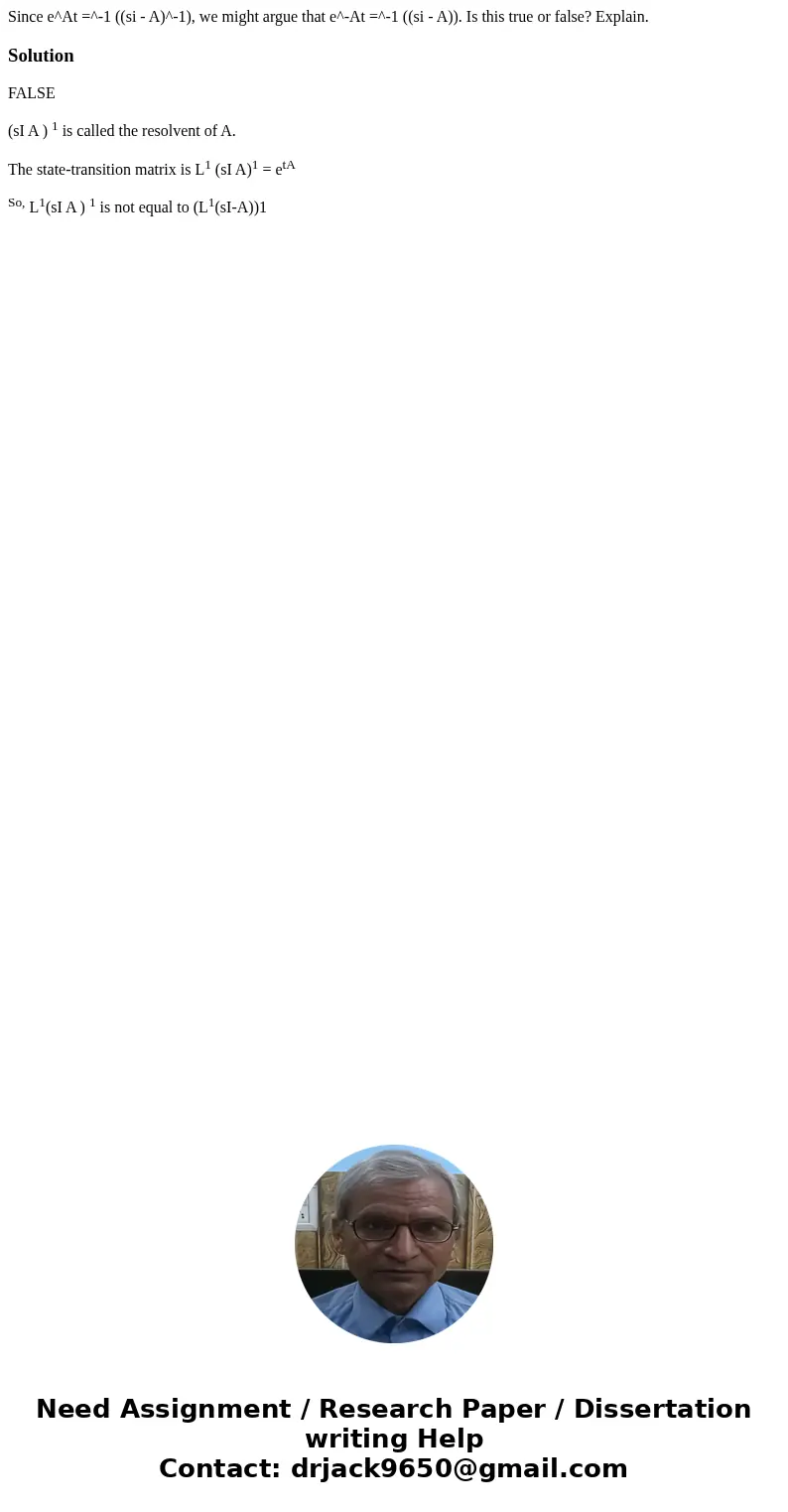Since eAt 1 si A1 we might argue that eAt 1 si A Is this t
Since e^At =^-1 ((si - A)^-1), we might argue that e^-At =^-1 ((si - A)). Is this true or false? Explain.
Solution
FALSE
(sI A ) 1 is called the resolvent of A.
The state-transition matrix is L1 (sI A)1 = etA
So, L1(sI A ) 1 is not equal to (L1(sI-A))1

 Homework Sourse
Homework Sourse